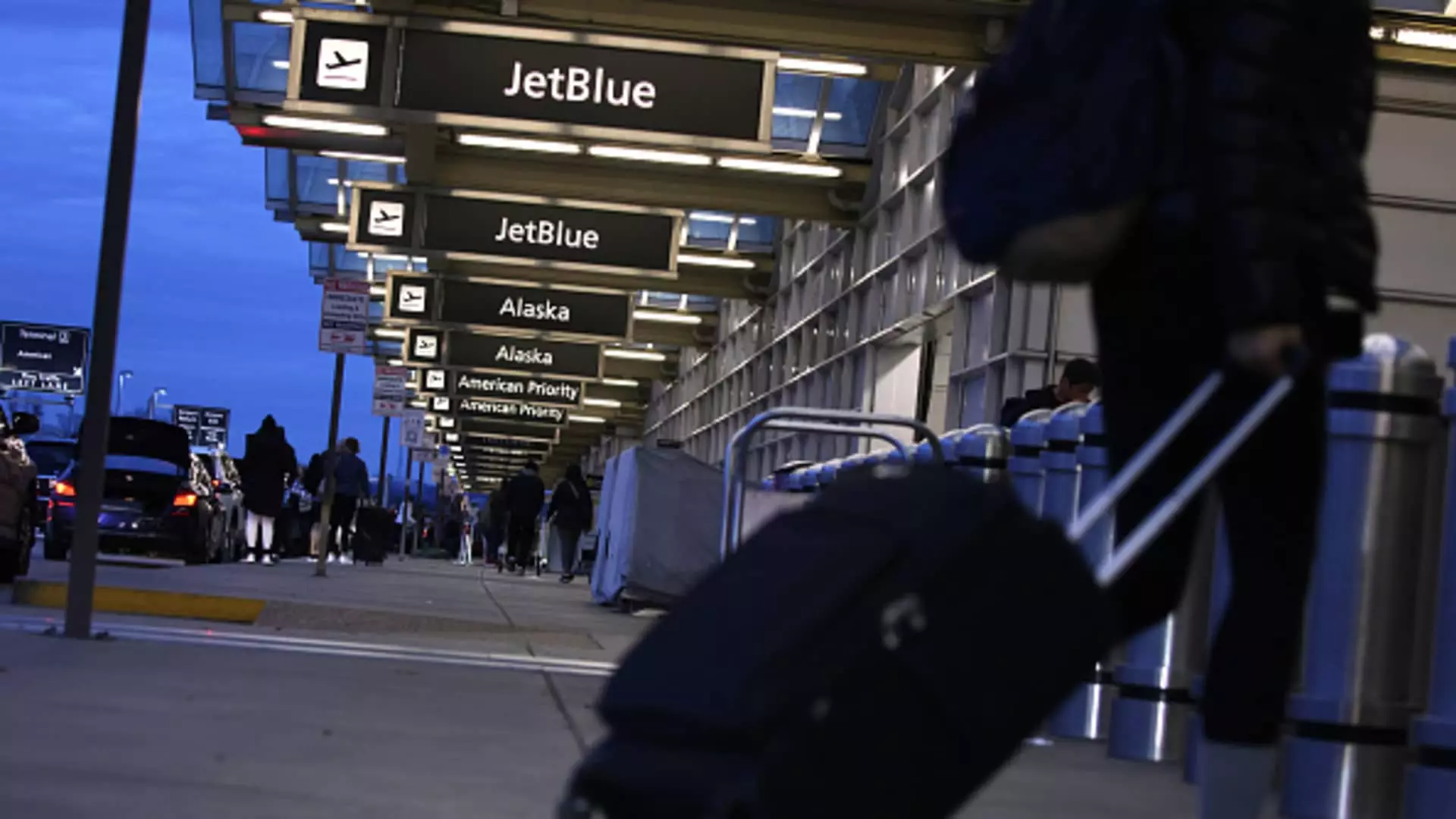In light of ongoing financial pressures, JetBlue Airways is embarking on a significant initiative to manage operational costs more effectively. The airline has announced the availability of early retirement packages targeted specifically at some of its pilot staff. This move, communicated to members of the Air Line Pilots Association, aligns with JetBlue’s broader strategy to enhance profitability and streamline its operations. With competition intensifying in the airline industry, JetBlue is not only focusing on cutting costs but also on generating higher revenues, which includes the introduction of premium first-class seating options.
Compounding JetBlue’s budgetary concerns is the recent Pratt & Whitney engine recall, which has resulted in the grounding of several aircraft. This issue has directly affected the airline’s operational capacity and revenue generation. By offering voluntary retirement packages, JetBlue is seeking to reduce its workforce strategically during a critical period, potentially minimizing the impact of the engine problems on flight scheduling and customer satisfaction. As the airline gears up for its quarterly earnings report, this early retirement initiative appears to be part of a more comprehensive plan to restore financial stability.
According to a detailed communication from the Air Line Pilots Association, eligible pilots must be at least 59 years old on or before March 31 to qualify for the retirement package. The airline has proposed that pilots who opt for this agreement will receive a payout equivalent to 55 hours of their hourly pay rate leading up to their mandatory retirement day, which is either 18 months from the agreement or until they reach 65 years of age—the federally mandated retirement age for U.S. commercial airline pilots. The financial implications for pilots vary significantly based on their rank and experience, showcasing how the offer balances benefits with the airline’s financial constraints.
The financial compensation associated with these packages reveals both opportunity and challenge for pilots. For instance, an experienced Airbus A320 captain, nearing retirement eligibility, stands to gain over $416,000, while a less experienced Embraer E190 captain in similar circumstances is offered around $160,000. Such figures underscore the varying levels of financial security among pilots based on their respective tenure and aircraft assignments. These retirement packages not only incentivize older pilots to leave gracefully, allowing for potential restructuring of the workforce, but also signal to younger pilots the airline’s commitment to easing operational burdens during tumultuous times.
As JetBlue prepares to adjust its flight operations and continue to navigate the complexities of the aviation industry, the response to these early retirement offers will be crucial. The closing date for submissions is set for February 7, and stakeholders, including pilots and industry analysts, will be watching closely to see how many choose to accept the offer. JetBlue’s proactive measures highlight a strategic shift that reflects broader trends in aviation, where airlines are increasingly seeking innovative solutions to maintain profitability in a challenging economic landscape. As the industry evolves, JetBlue’s actions may serve as a case study on the effectiveness of workforce management strategies in times of crisis.

